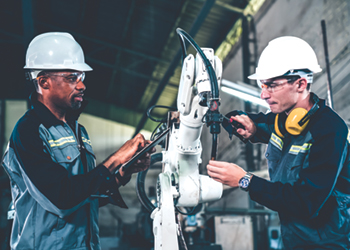
 Digital transformation is key to energy access in Africa
Digital transformation is key to energy access in Africa
Modern technology offers Africa an opportunity to track carbon footprints and enhance energy and environmental sustainability while maximising oil and gas production
With Africa pursuing the exploitation of its hydrocarbon reserves to address growing energy poverty and fuel industrialisation, artificial intelligence (AI) and analytics technologies present a massive opportunity for the continent to fast-track the development of oil and gas resources.
While Africa has had massive oil and gas discoveries in recent years — including the Greater Tortue Ahmeyim offshore Senegal and Mauritania, the Luiperd and Brulpadda in South Africa and the Rovuma Basin discoveries offshore Mozambique, among others — development has been slow owing largely to restricted investment, Covid-19 impacts and a lack of modern digital solutions.
With over 600 million living without access to electricity in Africa, the accelerated development of Africa’s oil and gas is key for making energy poverty history.
Now, with the emergence of AI and analytics across the oil and gas sector, an opportunity has risen for Africa to drive modern and sustainable energy growth for years to come.
With oil and gas production decreasing in Africa due to natural declines in legacy projects, increasing the use of AI and analytics across the upstream segment could help simplify drilling activities, revitalise the sector and expand the continent’s hydrocarbons reserves for energy reliability, saving project developers, operators and owners time and resources.
Furthermore, with African hydrocarbon-producing countries such as Nigeria losing billions in revenue due to theft and vandalism of infrastructure — a condition that is restraining Africa’s oil and gas sector from expanding — AI and analytics tools can help optimise industry growth by enhancing infrastructure maintenance and security across the entire oil and gas value chain, thereby helping reduce energy and revenue loss, and in the process stimulating investments across the oil and gas sector.
What’s more, despite Africa accounting for less than 3 per cent of all carbon emissions, global energy transition related policies are hindering the deployment of investments necessary for boosting the continent’s hydrocarbons sector.
However, by applying AI and analytics, African hydrocarbon-producing countries and companies have an opportunity to track carbon footprints and enhance energy and environmental sustainability while maximising oil and gas production and in the process attract investments required to boost energy production and drive economic growth.
Finally, with spending in digital solutions including AI and analytics within the global oil and gas sector set to increase by 7.5 per cent from $17.7 billion in 2020 to $17.17 billion by 2025 as companies optimise business processes, Africa’s hydrocarbons industry is well positioned to drive socioeconomic transformation through job creation and the establishment of a modern and next-generation energy workforce.
"The digital transformation of African oil and gas operations is key for Africa to achieve both its energy access and sustainability targets. By accelerating the adoption of AI and analytics tools, Africa’s oil and gas sector will help create demand for digital tools, placing Africa ahead of the digital revolution by encouraging technology development and job creation and in the process driving socioeconomic growth," says NJ Ayuk, Executive Chairman of the African Energy Chamber (AEC).


































































